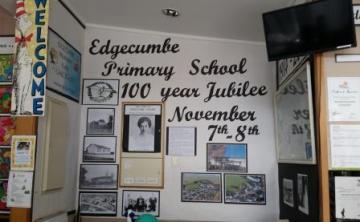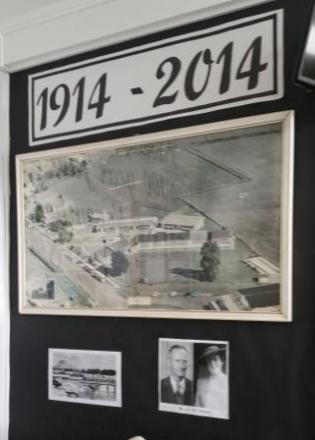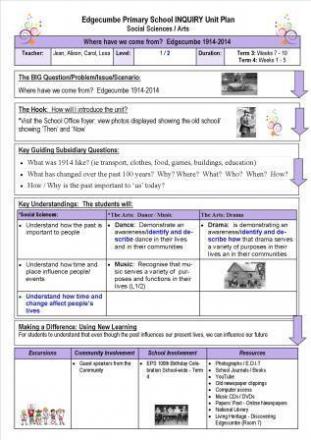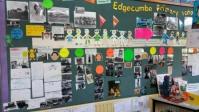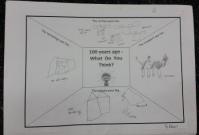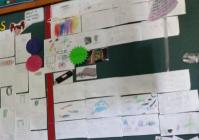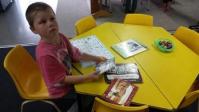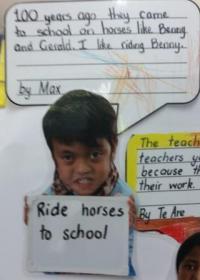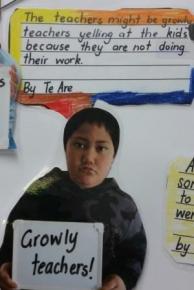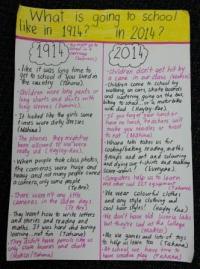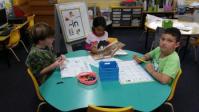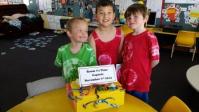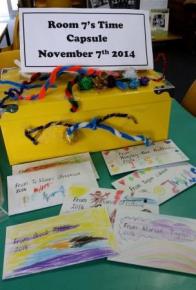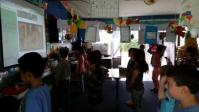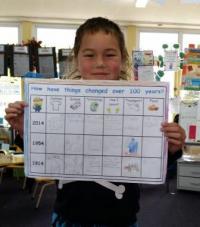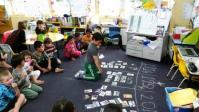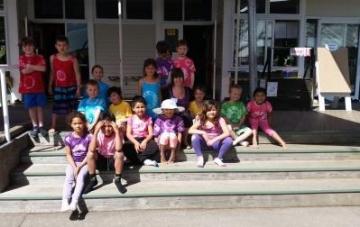Home-Happy 100th Birthday Edgecumbe Primary School
- Our team
- Learning outcomes and reflections
- Our research process
- The First Edgecumbe Primary School
- Our Edgecumbe Primary School today
- Room 7's learning journey
- The Jubilee Committee and the Big Birthday preparations
- How our school prepared for the Big Day!
- Room 1 - The Historical Room
- Friday - The day before 'Happy Birthday'
- Friday - The night before 'Happy Birthday'!
- Saturday - Happy Birthday Edgecumbe Primary School!
- EPS finally plants our trees!
- References and acknowledgements
Learning outcomes and reflections
The BIG Question:
Where have we come from? Edgecumbe 1914 - 2014
The Hook:
Visit our school Office foyer to view photographs showing our school - Then and Now
Key Guiding Subsidiary Questions:
- What was 1914 like? (i.e. transport, clothes, food, games, buildings, education)
- What has changed over the past 100 years? Why? Where? What? Who? When? How?
- How / Why is the past important to 'us' today?
Curriculum Areas: Key Understandings: Students will:
Social Sciences:
- Understand how the past is important to us
- Understand how time and place influence people and events
- Understand how time and change affect people's lives
The Arts - Dance / Music / Drama:
- Art: Create a t-shirt design with the student's family and tie dye a shirt to celebrate the school's Jubilee celebration
- Dance: Demonstrate an awareness / identify and describe dance in their lives and in their communities
- Music: Recognise that music serves a variety of purposes and functions in their lives
- Drama: Demonstrating an awareness / identify and describe how drama serves a variety of purposes in their lives and in their communities
Specific Learning Outcomes:
By the end of this inquiry unit, the students will be able:
- To describe / portray / present what life was like 100 years ago
- To describe / make predictions of what the next 100 years might be like
- Will be able to present in front of an audience, a 'visual art display'
To describe / portray / present what life was like 100 years ago:
- Make a 'Time-Line' showing pictorial / information of events occurring in Edgecumbe over the years (ie reclamation of land, World War 1, Edgecumbe earthquake)
- Brainstorm ideas / facts / information
- Use graphic organizers to present ideas / facts / information
- Pictorial comparison of what Edgecumbe / life was like 100 years ago to what Edgecumbe / life is like now
- Finding out facts / information - simple research skills / presenting and sharing information to / with whanau / class / syndicate
- Children to develop observational skills from visual displays / cues and summarizing information / identifying and acknowledging where information has come from
- Visual representations of childrens' learning (eg powerpoint presentations, charts)
- Describe / share 'key differences' between 'Then' and 'Now' / 'Past' and 'Present
- How has the 'Past' influenced the 'Present' - geographical, structural, environmental, cultural (i.e. people / community)
- Music / drama / dance to portray the 'times' (eg old War songs, listening to music and songs through the ages 1914 - 2014 by decades)
To describe / make predictions of what the next 100 years might be like:
- Using appropriate graphic organisers to display students' learning and understandings (e.g. T chart to compare)
- Class / group / buddy discussions - Buzz Groups
- Time Capsule - children to bring something / write stories of events, hobbies, interests, TV programmes, movies occurring in the 'Present' / draw pictures of themselves, technology from today, places or what children think the future might be in 100 years / write letters to their future selves to put into the Time Capsule
- We can have an impact / make a difference / make a change for our future / make choices that influence our future
Will be able to present in front of an audience, a 'visual art display':
- Songs / music / dance from the early 1900s in preparation to present in front of an audience (e.g. visitors, families, other classes)
Key Competencies:
Participating and Contributing - Successful as a group member, joining in with discussions / sharing ideas and presenting information
Managing Self - Able to make responsible choices and being prepared for learning
Relating to Others - Demonstrating an 'I Care' attitude working with other individuals and with groups
Thinking - Using prior knowledge to make predictions; developing and using observation skills to describe / explain events / aspects of the 'Past' and comparing to the 'Present'
Our School Values - 'I Care' (Caring, Achievement, Responsibility, Effort):
Caring:
- Contributing to school / class life
- Showing ' I Care' by listening to the ideas and opinions of others
Achievement:
- Completion of set tasks
- Working towards set learning goals
- Appropriate completion of set tasks and activities, and understanding the 'Where to Next?' steps
Responsibility:
- Being prepared for learning by having equipment ready, body and mind focused for learning
- Making sensible learning and behaviour choices - expectations
Effort:
- Being prepared for learning by having equipment ready and body and mind
- Completion of set tasks
- Contributing / participating with groups / class / school activities and tasks
Our Reflections of our Learning Journey Story
On reflection, we do not believe we would do many things differently. Whaea Niki and Whaea Lesa enjoyed this learning journey and we believe Room 7 children had benefited from the activities and experiences during this inquiry story too.
Some of the focuses Room 7 did not do, which had been part of our original inquiry planning were:
- Make a prediction of what Edgecumbe and EPS might look like in 100 years
- How we can influence the future?
- Look at how families have changed over 100 years (e.g. once upon a time families were big and today families are smaller units)
- Look at how our environment has changed over 100 years
- Look at the different occupations people had (e.g. Dad went to work, Mum stayed home)
However, we are still satisfied with the learning outcomes we have met.
Over one term, our class has managed to complete many different activities and have had many interesting experiences with the best experience being the 'Jubilee Celebrations' on the Friday, where our children met ex-students from their school.
Have these experiences and learning journey made 'impressions' upon our students? We believe so even if these experiences did not impact upon our students until they met with our 'grown up' visitors who came to our school during the Jubilee celebrations. Our students were lucky to have viewed photographs of how EPS had grown and changed over the years. Many of our students began to realize that EPS may keep changing over years to come.
Thank you.

